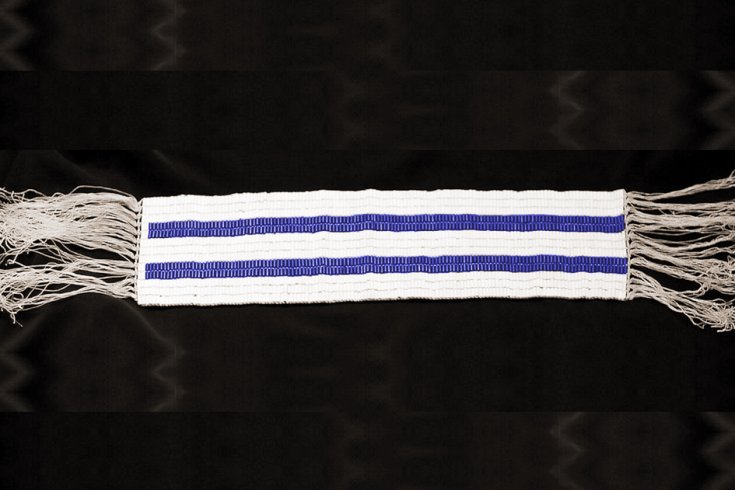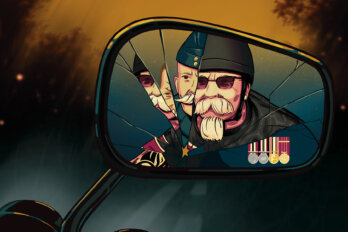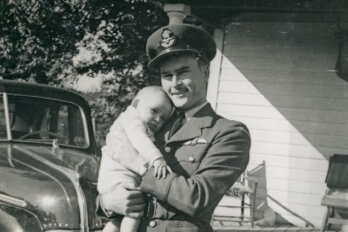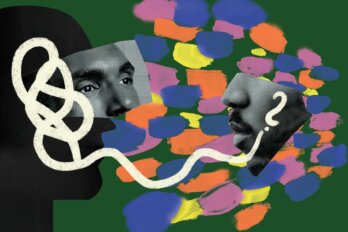Our love was a process of unlearning the bad love we’d been given. I know that now. I feel it when I wipe tears from your cheek, when you hold me close and stroke my back until the sobbing spasms stop. I feel it when we stare each other’s traumas down, refuse to tremble, refuse to break.
We both came from poor families, lugging legacies we never deserved. I remember the first and last time I kicked you out of anger. We were walking through the Price Chopper parking lot beside our high school. I did it in front of my sister and your best friend. You tripped me playfully. I stumbled but didn’t fall, and even as my foot connected with your shin, I thought we would somehow end up laughing. Men getting hurt was funny. Men getting hurt was normal.
You didn’t laugh. You asked what was wrong with me, and I pretended not to know. But I knew. Trauma and silence flanked me like foot soldiers, only they weren’t doing my bidding; I was doing theirs.
You’ve never hit me, kicked me, pushed me, punched me. You’ve barely even sworn at me. Sometimes I wonder how you conjured up your version of manhood. You had no father you knew, no grandfathers. You had professional wrestling during its most misogynistic era and a couple of Blink-182 albums. Neither were particularly revolutionary when it came to their depictions of masculinity.
That’s not to say we’ve fully shrugged off the roles we’ve been assigned. You are a man; I am a woman. You are a settler; I’m Onkwehon:we. These differences are stakes in our ground, mapping boundaries that feel like bruises. Any time we push against them, it hurts, but we both know we must be more than historical vessels, holding pain; more than performers re-enacting ancient scripts. Despite our best efforts, different shades of abuse will still colour our interactions—sometimes soft and diluted like watercolours, sometimes harsh and angry like charcoal. Cycles are hard to break.
My parents never broke theirs; after twenty years, the cycle broke them. Moving to the Six Nations reserve did it. Suddenly, my white mother became the minority. For the first time, she felt her whiteness—no longer a shield but a siren, screaming inherited histories she’d either never been taught or been forced to forget. Any time my father tried to connect with his Haudenosaunee culture, she felt it: her whiteness blinding and bright, as if a spotlight was shone on her.
She wasn’t racist. She couldn’t be. She had a Native husband, Native children. She lived on a reserve. And yet her white fragility and Catholic colonialism were racist. She wasn’t happy when my father finally felt pride in his brown skin. She felt wounded, excluded. She accused him of being racist against whites. She accused him of committing a mortal sin: turning his back on the Catholic Church he’d only joined to appease her.
I learned three things watching my mother:
1. No one can fuck their way to tolerance.
2. No one can marry into tolerance.
3. No one can carry for nine months and give birth to tolerance.
I’ve learned more watching you. You don’t flinch when I say the word white. You don’t feel attacked when I discuss colonialism. You encourage me to spend time with my family and community, to learn my language, to stand up for my people, to stand up for our land. You encourage our child to do the same. You see me as a Haudenosaunee woman, love me as a Haudenosaunee woman, and don’t feel threatened by what that means.
I remember when my father first taught me about the Two Row Wampum. It was originally a treaty between the Haudenosaunee and the Dutch, but it was accepted by the Crown, and therefore by Canada. They’ve never been able to uphold it.
It’s a belt of white wampum beads, representing the river of life. There are two rows of purple wampum that travel through the centre. One row represents the ship the settlers are steering; the other represents the canoe the Haudenosaunee are steering. Each vessel holds those peoples’ culture, language, history and values. The boat and canoe go down the river of life together—parallel but never touching, never crossing into the other’s path, never attempting to steer the other’s vessel or interfere with the other’s responsibilities. Neither vessel is better than the other. Neither group can make decisions for the other. It is a treaty based on peace and friendship, anchored in a deep respect for each culture’s distinct differences.
Because of you, I understand how the Two Row Wampum can be more than just a treaty between two nations of people; it can be a lived treaty between two individuals, between us: a Haudenosaunee woman and a settler man. These boundaries don’t have to be bruises. They can be our strength.
We untangle the threads of history and treat the wounds we find underneath. We listen to one another, support one another, resist our impulses to rewrite one another, to steer one another. We try to understand our distinct physical, emotional, spiritual, and mental needs and meet them as best we can.
Antiracism is a process. Decolonial love is a process. Our love is a process. I never want it to end.
Excerpted from A Mind Spread Out on the Ground by Alicia Elliott. Copyright © 2019 Alicia Elliott. Published by Doubleday Canada, a division of Penguin Random House Canada Limited. Reproduced by arrangement with the Publisher. All rights reserved.





